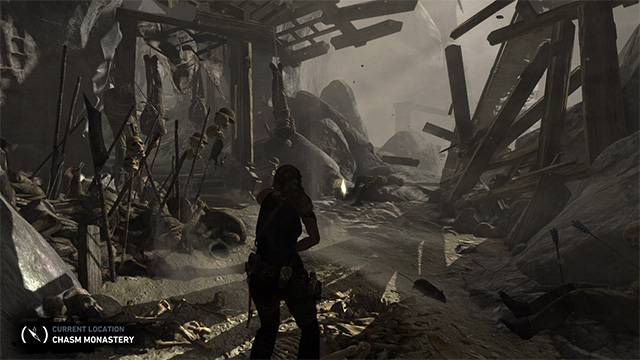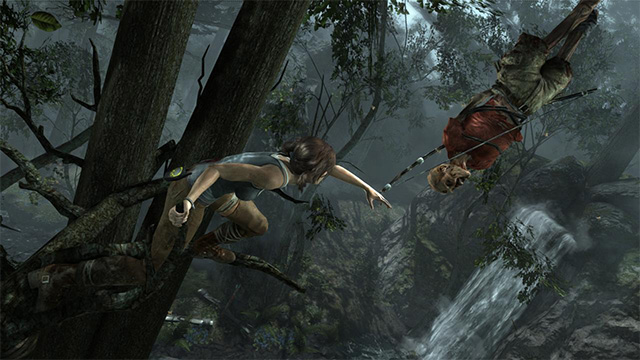Are you prone to depression?
Do you play spiritually dark games? Do they drain you?
How do you stay mentally and spiritually healthy?
Look at the games in your recently-played list. Pretend you have never seen them before… What kind of mood do they put off? Happy fun?

Videogames are nuclear bombs of emotive potential. Wait. Maybe it’s more accurate to say that they’re like nuclear fallout. They keep us so in-the-moment that we don’t realize they’re depressing the hell out of us.
Think back to this year’s Tomb Raider.
If you played it, you spent 10-20 hours in oppressive environments where a dude’s blood is the only bright color you see. That’s the equivalent of two days of full-time dark violent oppression.
This is mainstream gaming.

When I finished the game, I felt pretty down. I could only pray. Not for anything in particular; I just needed more light in my spirit so I didn’t shut down emotionally.
The mechanics still work and compliment exploration with skillful gun-play. But what about the psyche? I mean, Tomb Raider’s definition of “happy” does not fit with our common notions of the word: like when you shove a pickax into an enemy’s skull.
Maybe I’m just ridiculous for craving a smiling bowl of rainbows after Tomb Raiding, but I don’t think I am. How do you define entertainment? Is it just wasting time? Or do you want your time to add up, to mean something?

I want to be refreshed, not drained after I play a game.
I often wondered why I felt depressed all the time as a teenager. It probably emerged from the way I spent my time in those years. Yes, I journeyed within the colorful worlds of Mario 64 and Banjo Kazooie, but I spent even more time with Turok, Perfect Dark, and Deus Ex. Regardless of what I said, the dark colors, words, and images produced a negative effect on me. And I was far less equipped back then to deal with such a torrent of imagery than I am now.
While I’d be fine if I didn’t see another spiritually draining game for a while, the truth is the moment you engage with somebody else’s art, you step into all of their most personal issues. Doesn’t matter what the game is. We channel ourselves into our work. And of all spiritually-draining things, people remain the worst. Too bad Jesus’ greatest commandment involves dealing with people, huh? Maybe we can love on game designers by playing their games and celebrating the good, but keeping it all down to moderation and filtering?
Do you deal with clinical or un-diagnosed depression?
Be conscious of depressing content and consume in moderation. Actively filter, process, and critically engage. At the very least, address how it’s affecting you.
Action games build tension, making you feel oppressed so you can overcome opposition. This feels satisfying in the moment, but puts you in a hostile state of mind. It might not be good to spend a long time in that state.
Many games want to place you in a feedback-loop that makes you forget you’re doing the same thing over and over again (grinding). This cycle leads to massive dissatisfaction and a sense of meaninglessness. Cut back on the Candy Crush Saga a little.
No matter what kind of games you play, get spiritually charged before and after playing them. Pray and focus on true and praiseworthy things (Philippians 4:4-7). Or maybe don’t play spiritually draining games at all?
